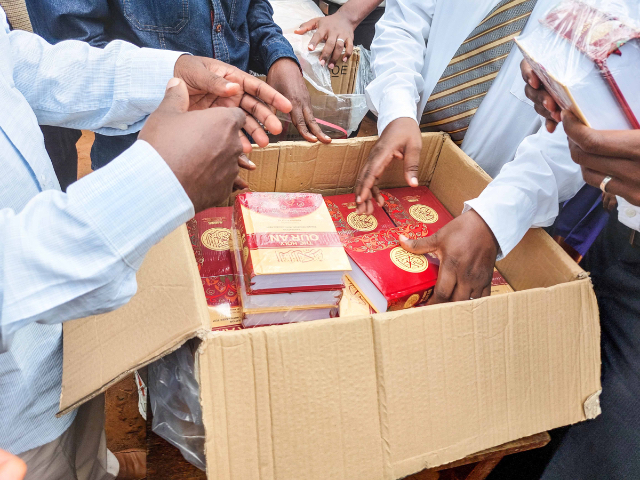Of the more than 40 countries represented at the annual International Law and Religion Symposium held at Brigham Young University in Provo, Utah, Sunday through Tuesday, October 2-4, eight were from African nations.
They inspired the audience with stories of success and learning that come from the challenges they face in Africa. The thread connecting each presentation was the recognition that the faith found among African nations has created some of the best examples of what is possible in peacebuilding. Noted more than once was the work of Nelson Mandela and Archbishop Desmond Tutu with the Truth and Reconciliation Commission of South Africa.
- International-Law-and-Religion-Symposium-2022
- International-Law-and-Religion-Symposium-2022
- International-Law-and-Religion-Symposium-2022
- International-Law-and-Religion-Symposium-2022
- International-Law-and-Religion-Symposium-2022
- International-Law-and-Religion-Symposium-2022
- International-Law-and-Religion-Symposium-2022
- International-Law-and-Religion-Symposium-2022
- International-Law-and-Religion-Symposium-2022
- International-Law-and-Religion-Symposium-2022
- International-Law-and-Religion-Symposium-2022
- International-Law-and-Religion-Symposium-2022
- International-Law-and-Religion-Symposium-2022
| Temple Square is always beautiful in the springtime. Gardeners work to prepare the ground for General Conference. © 2012 Intellectual Reserve, Inc. All rights reserved. | 1 / 2 |
The theme of the event, sponsored by the university of The Church of Jesus Christ of Latter-day Saints, was “Religion’s Roles in Peacebuilding.”
“Religion is one of the contributing factors for peacebuilding through its role in positive attitudes and in strengthening social integration and harmony,” commented Dr. Mohammed Assen from Ethiopia. “Peace and justice are the basic teachings of all religions, and the members and leaders of religions can play a vital role in promoting human dignity, reconciliation and equality using their governing values.”
Sharon Eubank, Director of Humanitarian Services for The Church of Jesus Christ, urged the audience of significant influencers, “Don’t just talk about this vital subject but do something about it.” She went on to cite many examples, including one humanitarian effort in Kenya where the Church and its partners rebuilt a school in Mombasa, after which the Church provided an equal number of Bibles and Qurans to students as an act of respect for individual beliefs.
Sister Eubank also made a call for “better religion,” saying, “What is needed is authentic Christianity, authentic adherence to Islam. As a person of faith, I call upon almighty God to bless you." She then encouraged the attendants to use their power and influence in a practical way to make a difference.
In her closing remarks, she quoted Matthew 5:9, which reads, "Blessed are the peacemakers, for they shall be called the children of God.”
African nations represented at the event were Cape Verde, South Africa, Nigeria, Ghana, The Gambia, Democratic Republic of the Congo, Ethiopia, and Mozambique.
The guests present were also privileged to attend the Church’s semiannual general conference, which included performances by the Tabernacle Choir at Temple Square and messages from Church leaders, during the weekend prior to the symposium.
“I was particularly touched by the conference on Sunday,” commented Emmanuel-Javier Luzolo Bambi Lessa, an advocate and former Minister of Justice for the Democratic Republic of the Congo, as he opened his presentation. “I have been a government leader, a university professor, a lawyer, and judge spanning 30 years, but never has my heart been so touched as it was last Sunday. The music and the messages seemed to penetrate my soul. I had to come 15,000 kilometers so that I could forget myself and renew my personal relationship with God. For this I am truly grateful.”
More information and reductions of talks and presentations will be available shortly at https://www.iclrs.org/annual-international-law-and-religion-symposium/29th-annual-international-law-and-religion-symposium/.
